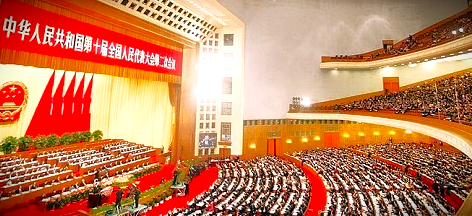In a sharp pivot from indulgence to austerity, China’s ruling Communist Party has issued a sweeping directive to its officials: put away the liquor, snuff out the cigarettes, and scale back the lavish banquets. The message is clear: frugality is now the new face of patriotism.
Amid mounting economic headwinds and ballooning local government debt, the Chinese government is cracking down on discretionary spending by officials, targeting areas like travel, receptions, office upgrades, alcohol, and tobacco. The move announced via a joint notice from the government and the Communist Party is being framed not just as a matter of budgetary prudence, but as a moral imperative. Waste, officials were told, is shameful; frugality, glorious.
This latest push, echoing President Xi Jinping’s long-standing anti-corruption and anti-extravagance campaigns, comes as Beijing faces a particularly precarious fiscal landscape. A sharp drop in revenue from land sales, the lifeblood of many local governments, has exposed financial vulnerabilities. In 2023, China launched its most aggressive effort in years to contain local government debt, warning of the systemic risks it poses to broader economic stability.
“Officials must get used to belt-tightening,” Xi had declared late last year, a line that now appears to have become both a policy and a philosophy. The language used in official communications emphasizes diligence, thrift, and an almost ideological return to socialist values, where excess is framed as betrayal.
But the ripples are already reaching the markets. Consumer staples, particularly companies reliant on official entertainment like top liquor producers Kweichow Moutai and Luzhou Laojiao took a hit on Monday, with stock drops of over 2%. Investors are bracing for the impact of fewer government-hosted feasts and less demand for high-end gifts traditionally exchanged among bureaucrats.
Analysts suggest that this cost-cutting campaign may serve multiple purposes: addressing fiscal challenges, tamping down elite corruption, and signaling to the Chinese public that the party is serious about shared sacrifice. It’s also a subtle nudge to ordinary citizens to embrace restraint during uncertain times.
Whether this strategy will be enough to bolster China’s sagging growth and restore public confidence remains to be seen. But one thing is certain: in today’s China, the era of opulent official dinners and flowing Moutai appears to be giving way to a new age of modest meals and measured means.
In a country where symbolism and political messaging carry great weight, the shift from smoke-filled banquet halls to leaner administrative practices isn’t just economic, it’s ideological. And in Xi’s China, ideology always comes with a bottom line.




